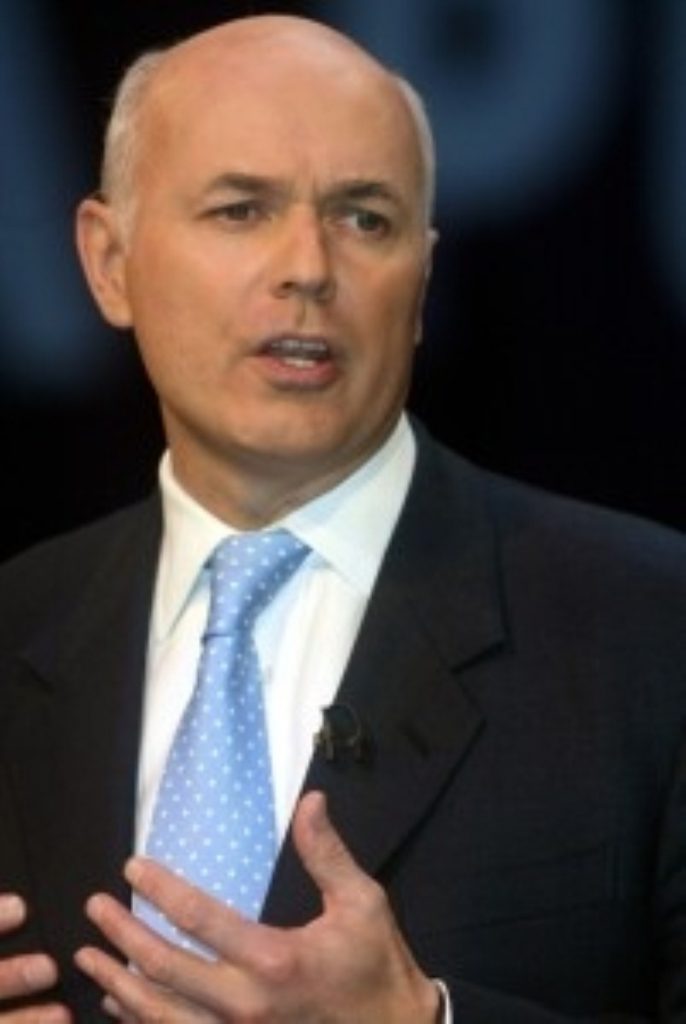Growing tension over Tory leadership
Iain Duncan Smith is facing an escalation of discontent in his own party, which is now reportedly on the verge of a leadership battle.
It was reported yesterday that Party chief whip David Maclean had met with the Party leader to tell him that he is losing control of the party. David Maclean has since dismissed the reports that he was the bearer of bad tidings, and claims that party members simply want the infighting to end so that they can get on with trying to win the next election.
Mr Maclean is one of several high profile Conservatives to speak about the varied reports over a challenge to Iain Duncan Smith today.
Party chairman Theresa May, and former leader William Hague have been telling the media that the party must unite behind their leader so as to stand a chance of success at the next election.


However, such public interventions have only served to distract attentions further from opposition efforts to attack the Government.
IDS is visiting the Midlands today, and intended to use his public engagements to attack Labour policy on university tuition fees. But this latest attempt to capitalise on Labour’s mid-term blues appears to have been overwhelmed by talk of Tory splits.
The latest attack came from an unusual but very powerful source. Multi-millionaire businessman Stuart Wheeler has labelled the Conservative leader weak, and claimed he does not look like a prospective Prime Minister.
Mr Wheeler has no seat in parliament, but bankrolled the Conservative party under the leadership of William Hague, and is still a significant source of Party funds. His comments follow those made this weekend by Conservative backbencher Sir Patrick Cormack, who claimed that the party was unhappy with IDS as leader, and that even his cabinet are not satisfied.
Despite all of the concerns, and much-touted lists of leadership candidates including David Davis, Michael Howard and Oliver Letwin, no challenge has yet been mounted.
After the Annual conference there was widespread speculation that conspirators might quickly gain the twenty-five names required to bring down Iain Duncan Smith. The names have yet to be collected, and some are now suggesting IDS should call his own vote of confidence to curtail rebellion.
John Major made such a move when he was under pressure from party rebels, who included Iain Duncan Smith among their number. He won his vote, and thus helped to reduce speculation over his leadership. But Iain Duncan Smith’s supporters have rejected such a move, arguing that as the Party’s first elected leader he should remain in charge.

